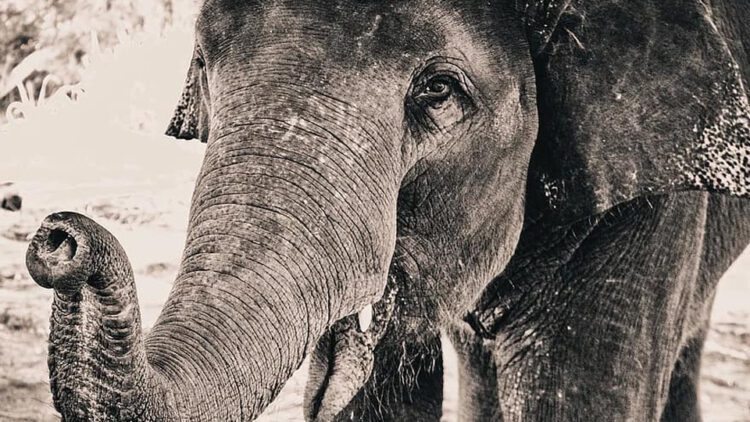Earlier this month, Mokgweetsi Masisi, the president of Botswana, offered to send Germany 20,000 of his country’s elephants. He was reacting to the German government’s plan to restrict the importation, by German hunters, of hunting trophies from Africa. “This is not a joke,” the president reportedly said of his offer
Mr Masisi may not have been joking, but his gambit definitely did have a humorous angle. And that’s just as well, considering the woeful and stuffy dearth of levity within the woke environmental conservation movement, to which Germany’s government would be capitulating if it went ahead with the proposed ban.
But perhaps the best backdrop for his reaction is the fact that, of all the countries in the world, none is doing a better job at wildlife conservation than Botswana. National parks and reserves cover more than a quarter of the country’s territory; and – even though tourism is its second-largest source of foreign income – it limits park visits by tourists to minimise disturbances to the landscape and wildlife.
As a result, this large, landlocked and sparsely-populated southern African country is now home to the world’s largest population of elephants (numbering over 130,000), along with similarly prodigious populations of other megafauna species. Chobe, one of its national parks, has the richest concentration of wildlife on the continent.
In 2020, an analysis by a group of scientists at the Wildlife Conservation Research Unit at Oxford University ranked Botswana first, of 152 surveyed countries, in terms of conservation efforts and outcomes (for what it’s worth, Norway, Canada and Bhutan were the only non-African countries in the top 10).
Importantly, to the chagrin of out-of-touch Western environmental activists, trophy hunting is an integral part of Botswana’s wildly successful conservation strategy. As it happens, the practice is a rather efficient way to control the populations of large animals – like Mr Masisi’s elephants – while generating revenue to finance further conservation efforts.
And yes, the populations of large animals do need to be controlled. Left unchecked, animals can cause tremendous damage to their own habitats as well as to human life and property. Elephants, for instance, when they go beyond their normal range, can consume crops, destroy dwellings, and kill people.
For this reason, trophy hunting – along with other forms of regulated hunting – is a necessary tool in the realistic conservationist’s chest. It takes advantage of a lucky confluence of incentives to achieve the best results for both humans and wildlife. And, unless abused, it does not constitute an arbitrary cruelty to animals.
As Dr Dan Challender, a conservation scientist at Oxford University, asserted in a recent BBC interview, “trophy hunting is not a threat to a single species […] this idea that import bans would help protect threatened or endangered species is essentially unfounded.”
The movement within the West to eliminate the importation of hunting trophies, especially from Africa, is not only misinformed, but also self-defeating. But this hasn’t stopped it from gathering steam. Western governments are falling like dominoes, steadily gnawing away at one of the most critical tools used to protect the very animals they claim to care so much about.
Germany is just the latest one to consider a ban of this kind. In January, Belgium’s parliament approved a sweeping ban on the import of hunting trophies, joining the Netherlands, Finland and other countries. Many others, like the United Kingdom, France and Italy, are in various stages of instituting their own bans.
Never mind that all these countries manage their own wildlife through regulated hunting. They do this, not because they hate their own animals, but because the model works. Not that long ago, when hunting wasn’t regulated, Europeans hunted almost all their megafauna to extinction. Stone age Germans, for instance, seemingly helped wipe out the last European elephants.
It may be that the distance to African megafauna is insulating Western policymakers from the results of their actions. Or perhaps they do indeed care more about African animals than their own. But then again, the voices of those who live with and protect these animals should count for something. And those voices haven’t been silent.
After all, Mr Masisi’s outburst wasn’t the first case of African protest. In March, for instance, Dumezweni Mthimkhulu, his wildlife minister, proposed to send the United Kingdom 10,000 elephants to keep at Hyde Park, to give the British people a “taste of living alongside” the seemingly gentle giants (Botswana has sent elephants to neighbouring countries to help seed new populations, hence – perhaps – their propensity to propose sending some to Europe).
Before that, in February, the Minister of Environment, Forestry and Tourism in neighbouring Namibia, in a formal letter of protest sent to Germany (once its colonial ruler), asserted that Namibia considers the ban a “unilateral, unlawful, neo-colonial interference with [its] sovereign right to sustainable use of [its] resources.”
Western governments would do well to heed these voices. For unlike the clamouring crowd of woke pseudo-environmentalists at their doorsteps, these countries have a stellar track record of actually protecting animals.
Mathew Otieno is a Kenyan writer, blogger and dilettante farmer. Until 2022, he was a research communications coordinator at a university in Nairobi, Kenya. He now lives in rural western Kenya, near the shores of Lake Victoria, from where he’s pursuing a career as a full-time writer while concluding his dissertation for a master’s degree. His first novel is due out this year. His article is published with permission
Source link : https://gript.ie/woke-conservationists-are-destroying-botswanas-plan-to-protect-its-elephants/
Author :
Publish date : 2024-04-21 07:00:00
Copyright for syndicated content belongs to the linked Source.
